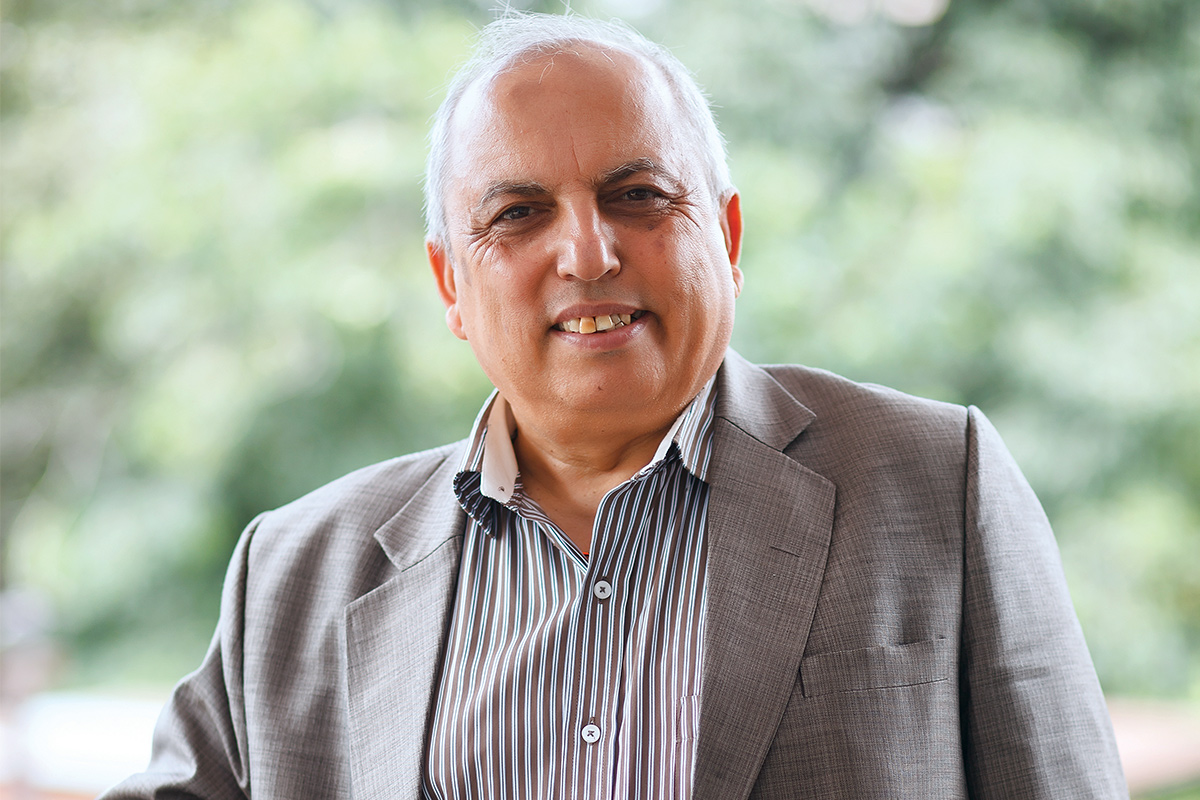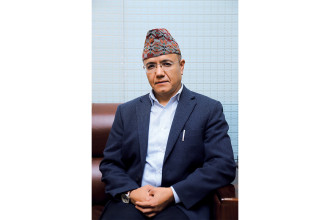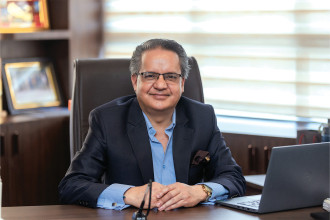
Dr Govind Nepal
Director, ISSR
Dr. Govinda Nepal is the Director of the Institute for Strategic and Socio-Economic Research (ISSR). Established in 2016, ISSR is an independent, interdisciplinary and non-profit think tank to create awareness on socio-economic development issues and influence public policy. After completing his Masters degree from Tribhuvan University and further studies from Moscow, Dr. Nepal worked as a Professor at TU for 39 years. A true multitasker, he has worked for different organisations at the same time. Some of the key roles he has accomplished are as Adviser to the government; Chief Adviser to the Finance Minister; Member of the National Planning Commission among others.
He has further worked with organisations like World Bank and Asian Development Bank as a consultant. Dr Nepal has also contributed to the establishment of different institutions like Mega Bank, ISSR and NIC Academy. He has additionally served as the Charter President of Lion’s Club and Board Member of Nepal Economic Association.
Ankita Jain of B360 interviewed Dr. Govinda Nepal to gain insight into his experience as a leader and his thoughts on leadership. Excerpts:
How would you describe your leadership style?
Leadership style is different for every individual. According to me, leadership combines three elements: vision, strategy and dynamism.
What is one characteristic that you believe every leader should possess?
Well, that one characteristic should be dynamism. Leaders should be dynamic. S/he has to change her/his strategies according to the need of the hour. Leaders have to understand their organization, manpower and their capabilities, and become an organic part of the organisation. Dynamism also refers to doing something innovative. For instance, you can replicate past experience and achieve success but with changing times, you can’t apply the same technique, strategy and achieve the results that you desire. One has to feel the pulse of the future.
ISSR is recognised by the Ministry of Finance as its policy partner. What went into this?
When you are working with the government, you have to understand their vision, plan and aspiration. Also, you need to do the research work accordingly. Since the ISSR team is working for 25-30 years with the government in one capacity or the other, we believe we are appropriate enough to work with the government on policy issues. And the government now has high aspirations. For instance, the government wants to develop the country into ‘Prosperous Nepal, Happy Nepalis’. This is the motto of the government of Nepal. It is easier said than achieved. So the government needs advice and inputs regarding different issues, one of them is economic. In this organisation, we have a team of highly competent economists and this way I believe, we can fruitfully cooperate with the government.
What has been the most important decision you have made as a leader in your career?
The most important decision was to lay the foundation of Mega Bank. I decided along with my friends to establish a bank which is promoted by a large number of shareholders rather than big corporate houses. Collecting money from masses and opening a bank really fascinated me. This was an idea and I took the challenge to shape it into reality. Now with more than 1200 promoters, we have founded a commercial bank with Rs. 2 billion.
How do you help a new employee understand the culture of your organisation?
Induction of the employee plays the most important role. Further, proper communication solves the rest of the problems. Employees should realise that they are working for the organisation and not for any individual. This enhances their innovative approach rather than following instructions.
Have you ever struggled with work-life balance?
Work-life balance is a great problem. We do multitasking and concentrate least on the family. Talking about my life, I was a professor in the university; adviser to the government; conducted consultancy work, performed social work in Lion’s Club… and all these at the same time. Today, when I don’t have much work to do, I feel that my life has become monotonous. Moreover, my family knows that I am using all my time for different responsibilities. Though they understand me, they frequently complain. Now I believe it is high time that I devote maximum time to the family.
As a leader have you faced any failure?
When I was a Fundraising Adviser to the Intermediate Technology Development Group, a British INGO, now known as Practical Action; I submitted a proposal to the foundation. The proposal was about an idea of converting hospital toilet waste into biogas energy which can be further used to cook meals in the hospital. This idea was well accepted and I received the funding immediately. To go ahead with the project, I invited people who work for the biogas sector and asked for their help. Every individual turned down my idea claiming that hospitals use detergent which forbids the formation of gas required. After a big no from everyone, the lesson I learned was to never make castles in the air. I submitted the proposal without knowing the ground reality and this was my biggest mistake. The obstacle didn’t end here. Since the fund was already sanctioned, I had to justify it. So, I organised a seminar inviting national and international experts available in the city who were directly or indirectly involved with the biogas. Finally, a solution was found and we succeeded in converting hospital toilet waste into biogas. But unfortunately, that produced biogas wasn’t utilised by the hospital attendants claiming that it came out of waste. Ultimately, the project was a complete failure.
Can you explain the impact, if any, that social networking has made on your organisation?
Social networking has helped us stay updated with the news, analysis and research. It also helps to interact with experts of different fields. And without the help of social networking, such an institution cannot function.
What are you doing to ensure to continue to grow and develop as a leader?
As a leader, one has to read and know the value of time. I am an early riser. I wake up at 3am and invest my first two hours on reading. Reading helps us but it is innovative thinking which helps us to grow. Moreover, I believe a leader should be accessible and have respect for the employees.
What criticism do you get most, if any?
I am often criticised for not communicating about the task I am doing. Further, I do not have a habit of jotting down important notes. This habit becomes problematic at times.
Any Nepali whose leadership skills have inspired you?
I get inspired by day-to-day people. There is a lady in my neighborhood whom I see everyday working day and night to earn meals for her family. She works throughout the day with no complaint and always greets people with a smile. Her hard work inspires me. Talking about the known faces, there is no other inspiration like Dr. Sanduk Ruit.



-(1)-1752214965.jpg)